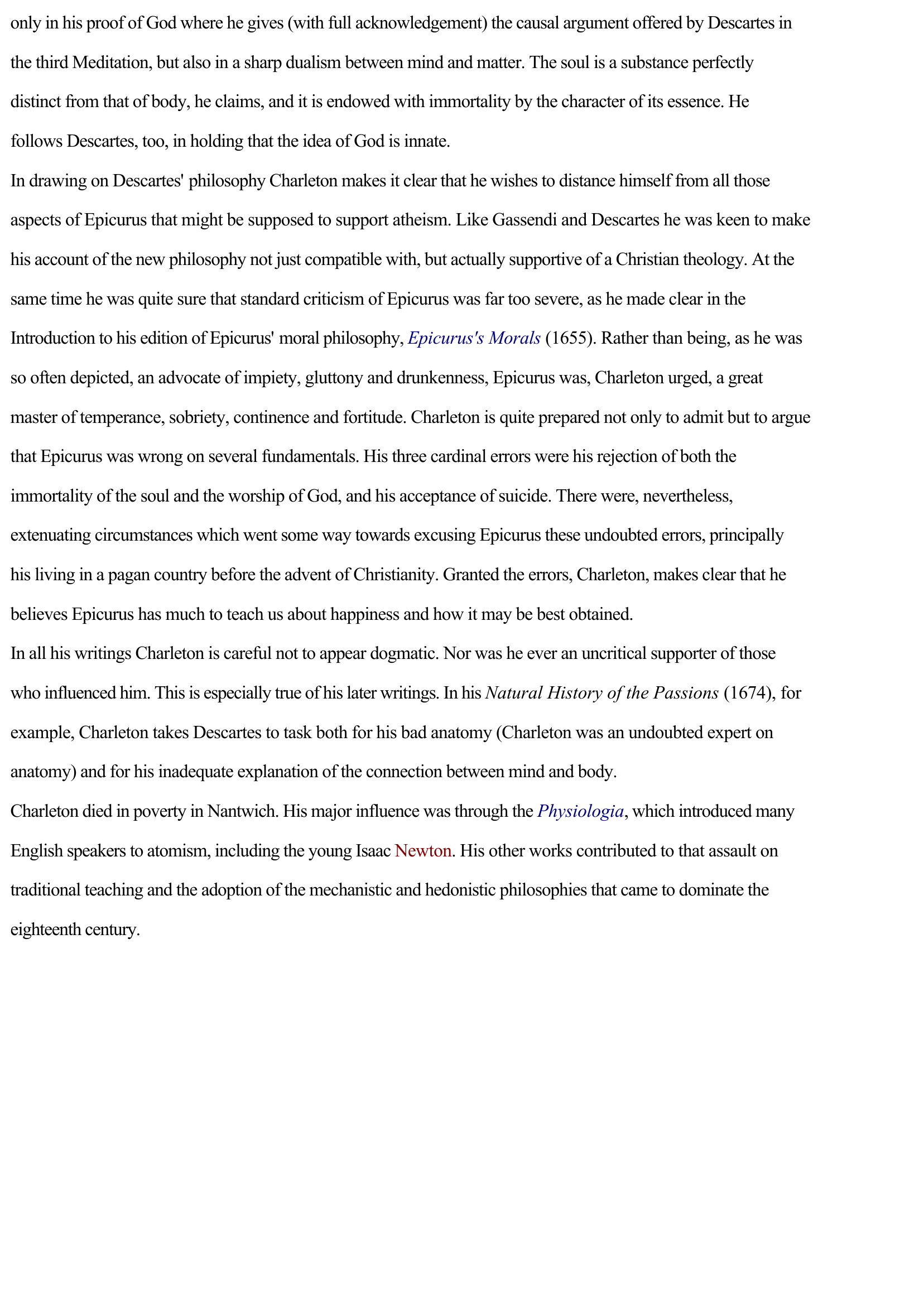Charleton, Walter
Publié le 22/02/2012

Extrait du document
«
only in his proof of God where he gives (with full acknowledgement) the causal argument offered by Descartes in
the third Meditation, but also in a sharp dualism between mind and matter.
The soul is a substance perfectly
distinct from that of body, he claims, and it is endowed with immortality by the character of its essence.
He
follows Descartes, too, in holding that the idea of God is innate.
In drawing on Descartes ' philosophy Charleton makes it clear that he wishes to distance himself from all those
aspects of Epicurus that might be supposed to support atheism.
Like Gassendi and Descartes he was keen to make
his account of the new philosophy not just compatible with, but actually supportive of a Christian theology.
At the
same time he was quite sure that standard criticism of Epicurus was far too severe, as he made clear in the
Introduction to his edition of Epicurus ' moral philosophy, Epicurus's Morals (1655).
Rather than being, as he was
so often depicted, an advocate of impiety, gluttony and drunkenness, Epicurus was, Charleton urged, a great
master of temperance, sobriety, continence and fortitude.
Charleton is quite prepared not only to admit but to argue
that Epicurus was wrong on several fundamentals.
His three cardinal errors were his rejection of both the
immortality of the soul and the worship of God, and his acceptance of suicide.
There were, nevertheless,
extenuating circumstances which went some way towards excusing Epicurus these undoubted errors, principally
his living in a pagan country before the advent of Christianity.
Granted the errors, Charleton, makes clear that he
believes Epicurus has much to teach us about happiness and how it may be best obtained.
In all his writings Charleton is careful not to appear dogmatic.
Nor was he ever an uncritical supporter of those
who influenced him.
This is especially true of his later writings.
In his Natural History of the Passions (1674), for
example, Charleton takes Descartes to task both for his bad anatomy (Charleton was an undoubted expert on
anatomy) and for his inadequate explanation of the connection between mind and body.
Charleton died in poverty in Nantwich.
His major influence was through the Physiologia , which introduced many
English speakers to atomism, including the young Isaac Newton .
His other works contributed to that assault on
traditional teaching and the adoption of the mechanistic and hedonistic philosophies that came to dominate the
eighteenth century..
»
↓↓↓ APERÇU DU DOCUMENT ↓↓↓
Liens utiles
- Le personnage de SHANDY Walter
- ROB ROY (Robert Campbell Mac-Gregor dit). Personnage de Rob Roy de Walter Scott.
- ANNE DE GEIERSTEIN ou La fille des brumes de Walter Scott (résumé & analyse)
- Walter de la Mare : VERRE BRÛLANT (Le) ET AUTRES POÈMES [The Burning Glass and Other Poems]. (résumé)
- PIRATE (Le) de Walter Scott (résumé)

































